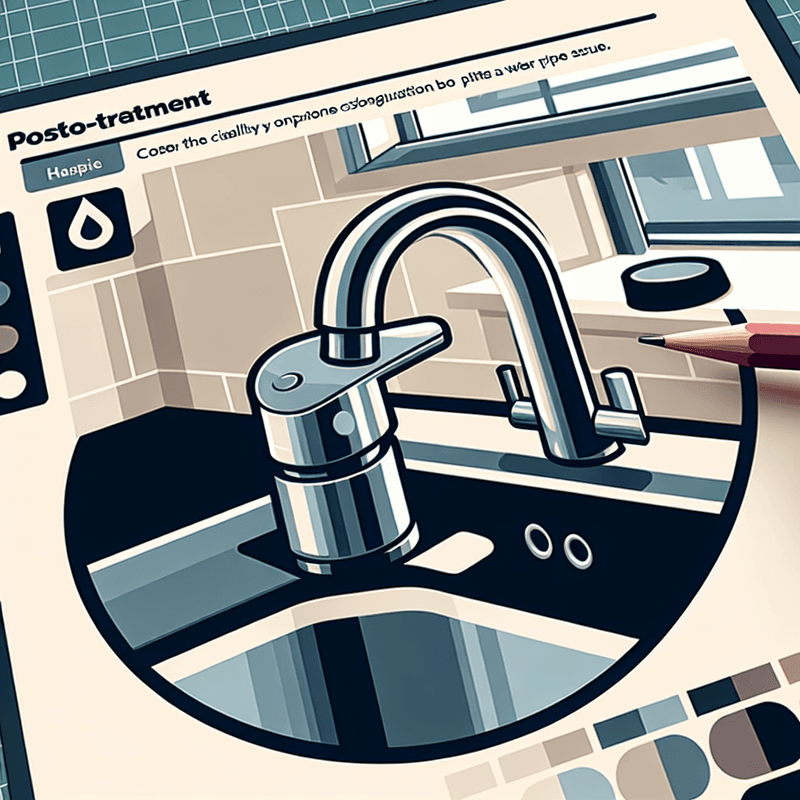If you've ever been faced with a blocked sink, you know how frustrating it can be. Water pooling up, draining slowly, and an unpleasant odour can disrupt any household's routine. More often than not, a blocked sink is a common issue that many encounter, yet it causes considerable inconvenience. Understanding the root causes, identifying the early signs, and knowing how to effectively tackle such issues can ensure your sink remains clear and fully functional.
What Causes a Sink to Block?
The culprits behind sink blockages are usually right under our noses – or rather, in our daily habits and practices. In kitchens, the major cause is the accumulation of food debris, grease and fat that stick to the inner walls of the pipes. In bathrooms, the blockage is most often due to knotted hair, soap scum, and toothpaste build-up. Over time, these substances collect to form a plug, hindering water flow and causing blockages.
Spotting the Early Signs of a Blocked Sink
Before a full blockage develops, there are usually warning signs:
- Slow Draining: If water starts to drain more slowly than usual, it’s often an indicator that a blockage is starting to form.
- Unusual Noises: Gurgling sounds from your drain can be a sign of trapped air escaping from beneath the blockage.
- Unpleasant Odours: An obvious sign of a potential blockage is a bad smell emanating from the drain. This is caused by rotting food debris or stagnant water.
DIY Tips for Unblocking Your Sink
Here are some safe and practical methods you can try yourself:
1. Boiling Water: Sometimes, simply pouring boiling water down the drain can clear greasy or soapy blockages.
2. Plunger: A good, old-fashioned plunger can often dislodge blockages. Ensure you have a good seal around the plunger and give it several firm, quick pumps.
3. Baking Soda and Vinegar: This natural combination can be very effective; pour half a cup of baking soda followed by half a cup of white vinegar down the drain. Cover the drain to contain the reaction and flush with hot water after ten minutes.
4. Plumber’s Snake: A plumber’s snake or a hand auger can be inserted into the drain to physically break apart the blockage.
When to Call a Professional
While DIY methods can be effective for minor blockages, some situations definitely call for professional attention:
- Recurring Blockages: If blockages happen frequently, it might indicate a deeper issue that simple surface solutions can’t solve.
- Multiple Blocked Drains: If more than one drain is blocked, the problem could be in your sewer line, which definitely requires professional intervention.
- Overflowing Water: If water backs up and overflows when you try to clear the blockage, stop immediately and call a professional.
Long-Term Prevention Tips
Preventing sink blockages isn’t just about dealing with them as they arise but also about taking steps to minimise their occurrence:
- Use Sink Strainers: Placing strainers in the drain can catch debris like food particles or hair.
- Regular Cleaning: Regularly clean your sink with hot water and dish detergent, which can help dissolve grease and prevent build-up.
- Proper Waste Disposal: Avoid pouring oils, fat, and coffee grounds down your kitchen sink. In the bathroom, try to keep hair and soap scum out of the drain.
Conclusion
Understanding why your sink keeps blocking and knowing how to respond can save you significant hassle and potential expense. Incorporating preventative measures into your daily routine is the best way to avoid blocked sink issues. However, it's always prudent to know when a situation warrants calling in a professional to handle deeper or more severe blockages. Regular maintenance and sensible usage of sinks can keep this inconvenience at bay, ensuring your home systems continue to function smoothly and efficiently.





